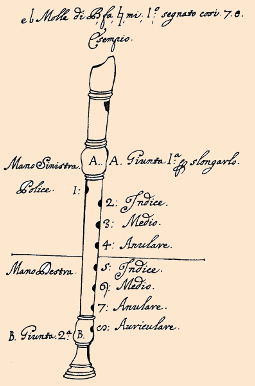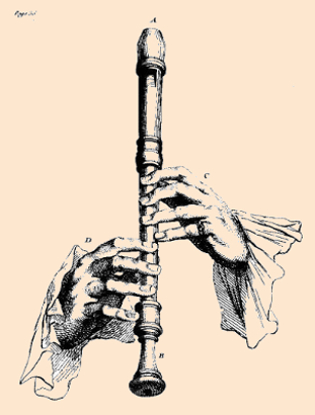PHILIPPE BOLTON
HANDMADE RECORDERS & FLAGEOLETS
THE BAROQUE RECORDER
These two drawings show recorders made in 3 parts. The design of the recorder
changed considerably at the turn of the 18th century to improve its
virtuosity. This type of construction makes it easier to make the complex conical bore structure which gives the instrument easier
fingerings and a wider range.
The illustration on the left, by Bismantova (1677) is Italian, and is the first
known representation of this new type of recorder. However it applies to an
alto recorder in g, indicating that this instrument was still
predominant in Italy at the time.
The right hand drawing is by Jacques
Hotteterre-le-romain and dates from 1707. It shows an alto recorder in
f which became the principal solo recorder of the baroque period.

|

|
Click on each picture to see the corresponding fingering chart